Abstract
Flowering in the long day plant Hordeum vulgare L. var. Wintex barley was enhanced by the addition of far red light to the main light portion of the photoperiod. Far red energy was provided to produce quantum flux ratios (660/730 nm) and phytochrome photoequilibria (Pfr/total phytochrome) equivalent to those reported both beneath a leaf canopy and outside a canopy at twilight. The photoperiodic requirement for long days can be completely eliminated by the addition of far red light. However, both the effect of extending the photoperiod without far red and the addition of far red to 12-hour photoperiods were suboptimal. Maximal stimulation was achieved only when far red was added to continuous light. The duration of the period of maximal apex elongation rate, as well as the reduction of the time required for floral initiation, were saturated by three inductive cycles. When far red energy was provided intermittently during 3 days of continuous light, the ability to respond varied in a circadian manner. This enhancement of flowering by far red appears to be mediated by the “high irradiance response” of phytochrome.
Full text
PDF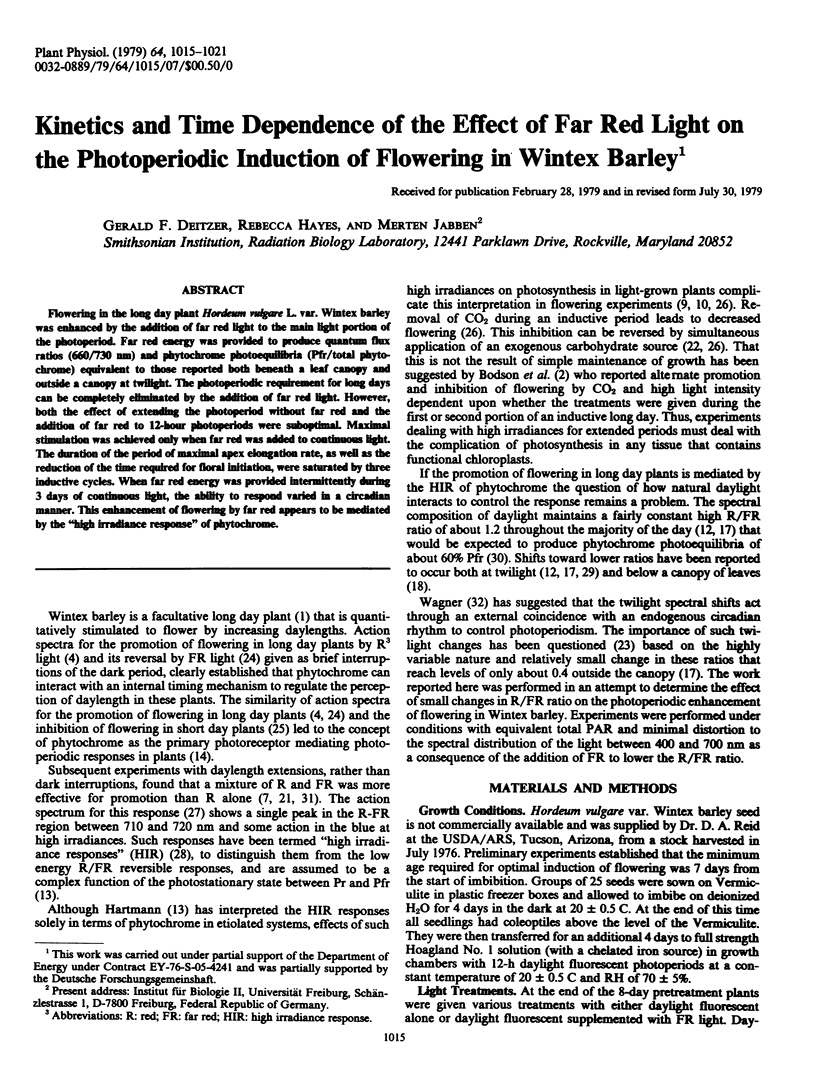
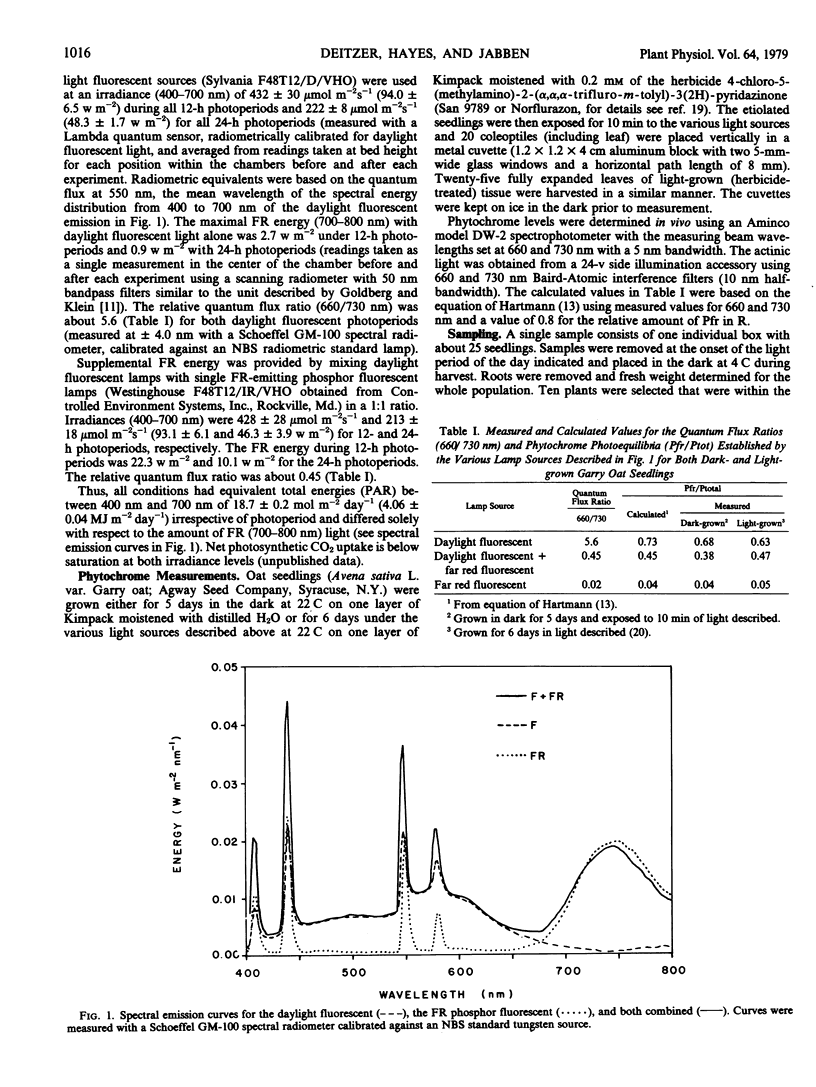
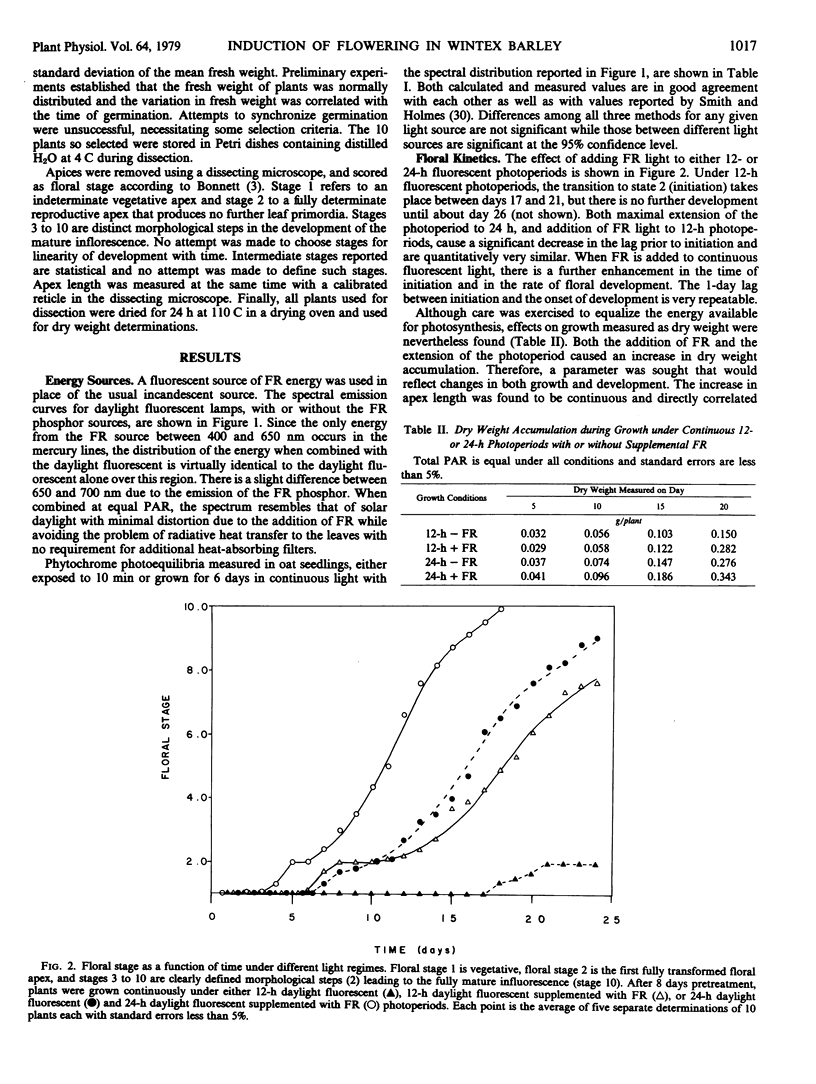
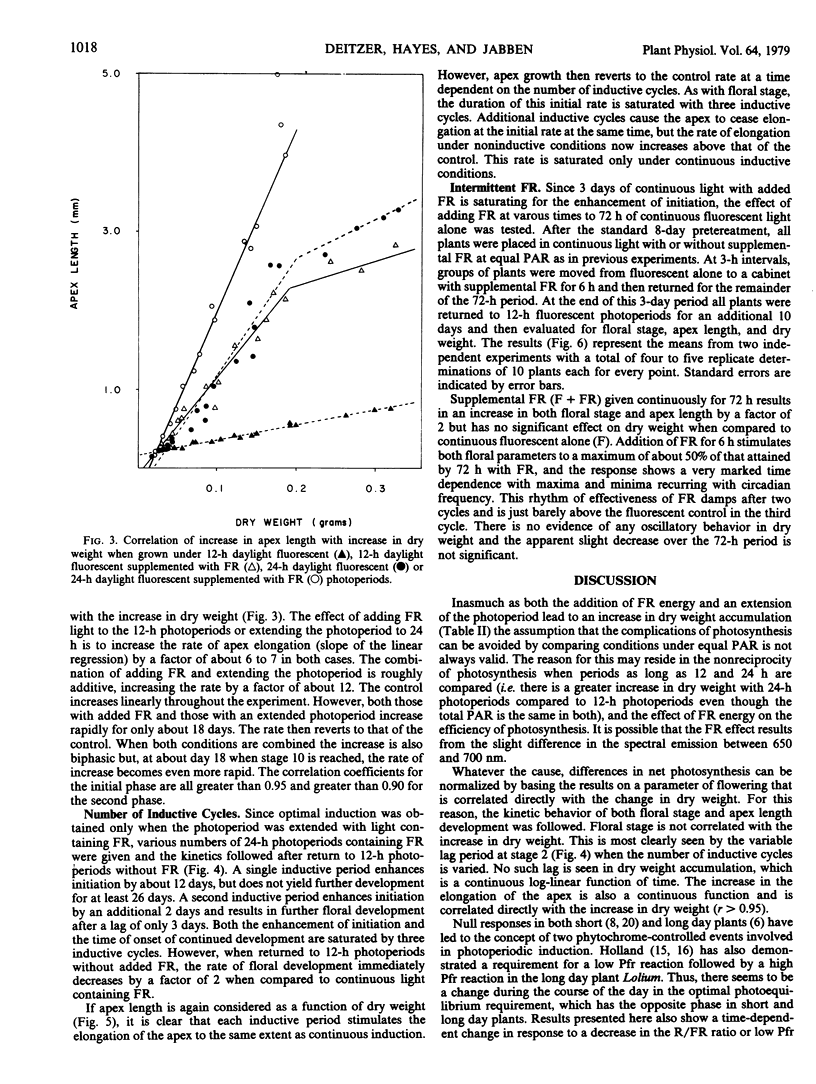
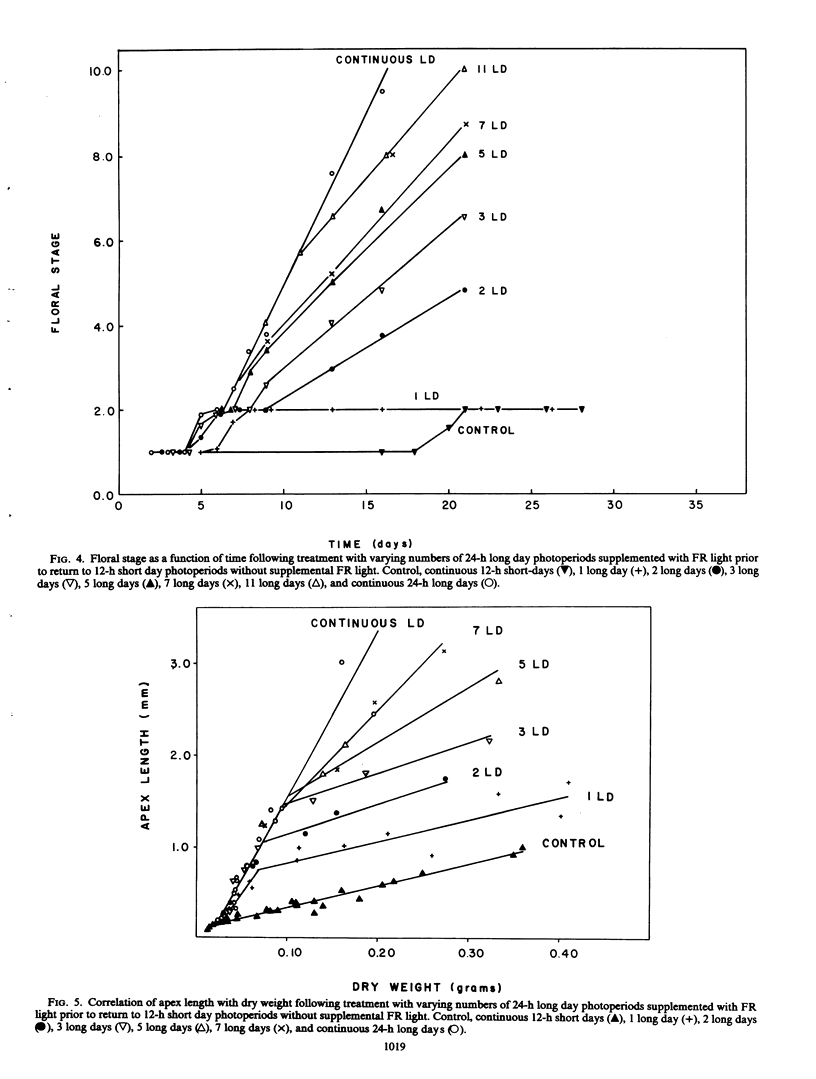
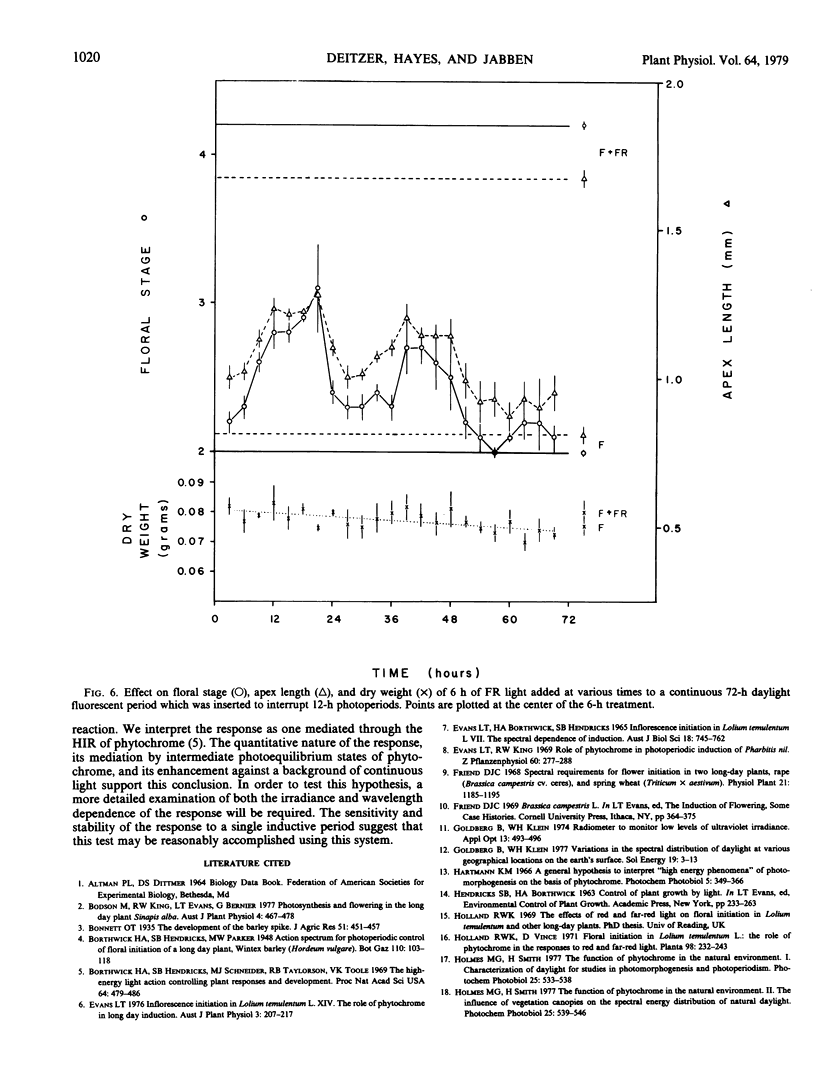
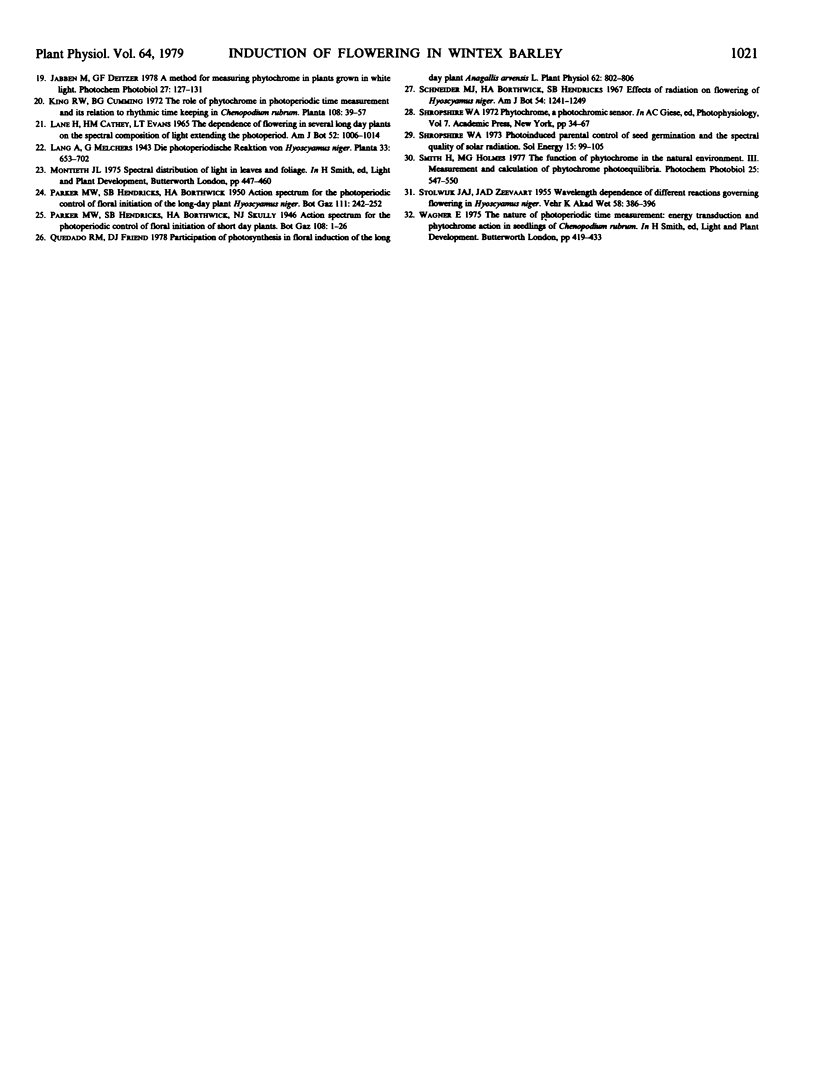
Selected References
These references are in PubMed. This may not be the complete list of references from this article.
- Borthwick H. A., Hendricks S. B., Schneider M. J., Taylorson R. B., Toole V. K. The high-energy light action controlling plant responses and development. Proc Natl Acad Sci U S A. 1969 Oct;64(2):479–486. doi: 10.1073/pnas.64.2.479. [DOI] [PMC free article] [PubMed] [Google Scholar]



